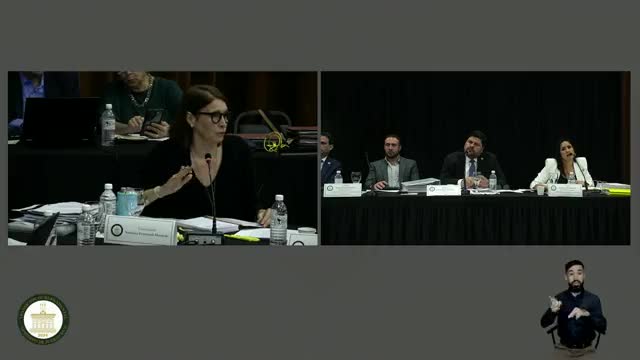Puerto Rico faces HIV medication access crisis amid Medicare Drug Rebate Program changes
December 02, 2024 | Transition 2024 - 2025, Puerto Rico
This article was created by AI summarizing key points discussed. AI makes mistakes, so for full details and context, please refer to the video of the full meeting. Please report any errors so we can fix them. Report an error »

In a recent government meeting held on December 2, 2024, the Puerto Rico Department of Health addressed significant concerns regarding the impact of the Medicare Drug Rebate Program (MDRP) on HIV treatment services in the community. The discussions highlighted a drastic increase in costs and operational challenges faced by clinics providing essential medications and services to vulnerable populations.
The meeting revealed that the implementation of the MDRP has disrupted the financial flow for HIV clinics, which previously relied on a system where the Department of Health purchased medications and provided them at no cost to authorized clinics. With the new program, clinics are now required to purchase medications upfront, leading to cash flow issues and potential delays in patient care. This change has raised alarms among healthcare providers, who expressed concerns about their ability to maintain adequate medication supplies for patients in need.
Participants discussed the complexities of the MDRP, noting that it restricts the use of federal funds in a way that prevents clinics from receiving double rebates for the same medications. This has resulted in clinics struggling to manage the high costs of HIV medications, which can exceed $5,000 for a single prescription. The financial strain has not only affected the availability of medications but also the broader range of services that clinics provide to their communities.
The Department of Health acknowledged the challenges and committed to exploring solutions to ensure that clinics can continue to serve their patients effectively. They emphasized the importance of coordination between various health programs and the need for a sustainable model that allows for the continued provision of HIV services without compromising patient access.
As the meeting concluded, officials expressed their determination to work collaboratively with community stakeholders to address these pressing issues. The outcome of these discussions will be crucial in shaping the future of HIV care in Puerto Rico, ensuring that vulnerable populations receive the necessary support and treatment they require.
The meeting revealed that the implementation of the MDRP has disrupted the financial flow for HIV clinics, which previously relied on a system where the Department of Health purchased medications and provided them at no cost to authorized clinics. With the new program, clinics are now required to purchase medications upfront, leading to cash flow issues and potential delays in patient care. This change has raised alarms among healthcare providers, who expressed concerns about their ability to maintain adequate medication supplies for patients in need.
Participants discussed the complexities of the MDRP, noting that it restricts the use of federal funds in a way that prevents clinics from receiving double rebates for the same medications. This has resulted in clinics struggling to manage the high costs of HIV medications, which can exceed $5,000 for a single prescription. The financial strain has not only affected the availability of medications but also the broader range of services that clinics provide to their communities.
The Department of Health acknowledged the challenges and committed to exploring solutions to ensure that clinics can continue to serve their patients effectively. They emphasized the importance of coordination between various health programs and the need for a sustainable model that allows for the continued provision of HIV services without compromising patient access.
As the meeting concluded, officials expressed their determination to work collaboratively with community stakeholders to address these pressing issues. The outcome of these discussions will be crucial in shaping the future of HIV care in Puerto Rico, ensuring that vulnerable populations receive the necessary support and treatment they require.
View full meeting
This article is based on a recent meeting—watch the full video and explore the complete transcript for deeper insights into the discussion.
View full meeting